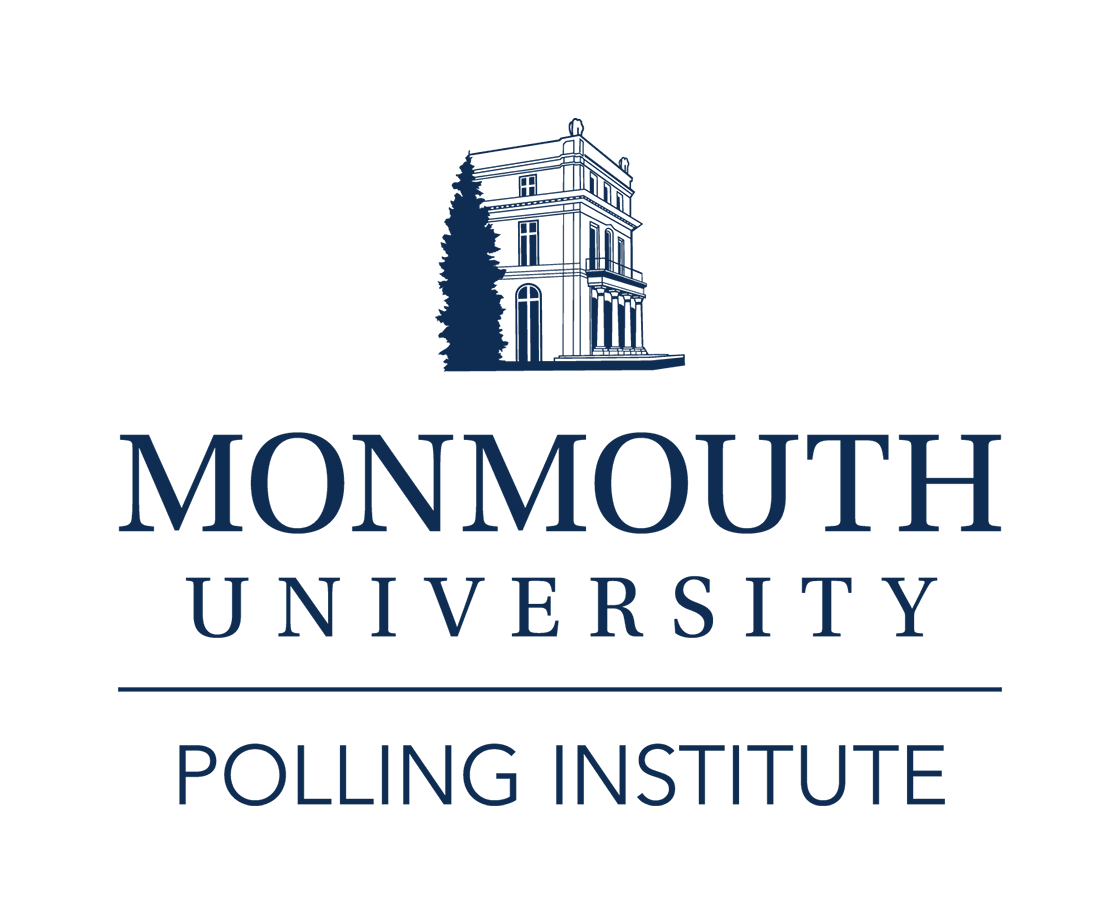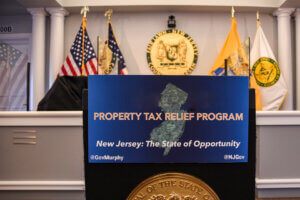The latest Monmouth University/NJ Press Media Poll finds that Garden State residents give positive marks to race relations in their local area and say that diversity overall has been good for the state. Most also say it is important that people have close friends of other races.
One-in-four (26%) New Jersey residents say race relations in the area where they live are excellent and 52% rate them as good. Another 17% say local race relations are only fair and just 3% say they are poor. Non-Hispanic white residents (31%) are somewhat more likely than those of other racial backgrounds (17%) to rate race relations as excellent. Compared to a poll taken in December 2010, the number of New Jerseyans who give a generally positive rating to race relations has increased from 67% to 78% today.
New Jersey is one of the most racially and ethnically diverse states in the country. Half (50%) of New Jerseyans say that this amount of diversity is good for the state’s quality of life compared to just 8% who say it is bad. Another 32% say diversity has no impact. The number who say diversity is a plus for New Jersey has increased by 7 points since 2010 while the percentage who say it is a negative has gone down by 8 points.
Most New Jerseyans report having close friends from different racial backgrounds, including 28% who report that all or most of their friends are of a different race and 55% who say that some of their friends are of a different race. Another 16% say they have few or no friends of a different race. These results are nearly identical to a national poll taken by the Washington Post and Kaiser Foundation last October.
In New Jersey, non-Hispanic white residents (15%) are less likely than other residents (53%) to say all or most of their friends are of a different race. Among the state’s minority groups, though, black New Jerseyans (34%) are less likely than either Asians (57%) or Hispanics (65%) to report that all or most of their friends are of a different race.
The poll found significant statewide age differences for reports of interracial friendships. Nearly half (46%) of those under age 35, regardless of racial background, report that all or most of their friends are of a different race. This compares to just 25% of those age 35 to 54 and 17% of those age 55 and older.
Nearly 3-in-4 New Jerseyans say it is important for people to have close friends who are a different race from them, including 34% who say this is very important and 38% somewhat important. Another 12% say it is not too important and 12% not at all important. Residents of black, Hispanic, or Asian backgrounds (48%) are more likely than non-Hispanic whites (26%) to say that inter-racial friendships are very important.
The poll also found that most residents believe that racial equality between blacks and whites has already been achieved (42%) or will be achieved (27%) in their lifetime. Only 26% say they won’t live to see equal treatment of the two races. Non-Hispanic whites (50%) are more likely than residents of other racial backgrounds (30%) to feel that black and white equality has already been attained. Among black residents specifically, that number is even lower at 19%. In fact, half (51%) of black New Jerseyans expect that they will not live to see racial equality.
The 69% of all New Jerseyans who are optimistic about racial equality is up slightly from 61% in 2010 and similar to the 67% measured in early 2009. That poll, of course, marked the start of Barack Obama’s tenure as President of the United States.
Currently, 36% of Garden State residents say that Obama’s presidency has helped race relations in this country compared to 16% who say it has hurt them. Another 44% say Obama’s presence in the Oval Office hasn’t made much of a difference to American race relations. Non-Hispanic whites are more likely to say that Obama has made no difference in race relations (50%), with another 27% saying he has helped and 18% hurt. Black, Hispanic, and Asian residents, on the other hand, are more likely to say that Obama has helped race relations (51%), compared to 12% hurt and 33% no difference.
The Monmouth University/NJ Press Media Poll was conducted by telephone with 803 New Jersey adults from January 31 to February 4, 2012. This sample has a margin of error of ± 3.5 percent. The poll was conducted by the Monmouth University Polling Institute and originally published by the New Jersey Press Media newspaper group (Asbury Park Press, Courier-Post, Courier News, Daily Journal, Daily Record, and Home News Tribune).
DATA TABLES
The questions referred to in this release are as follows:
(* Some columns may not add to 100% due to rounding.)
1. In general, do you feel that blacks and whites are treated equally in our society, or not?
|
TOTAL | REGISTERED VOTER | PARTY ID | RACE |
AGE | |||||||
| Yes | No | Dem | Ind | Rep | Non-Hisp White | Black/Hisp/ Asian | 18-34 | 35-54 | 55+ | ||
| Yes | 42% | 42% | 41% | 27% | 50% | 52% | 50% | 30% | 47% | 40% | 39% |
| No | 50% | 50% | 50% | 65% | 43% | 39% | 42% | 62% | 47% | 50% | 52% |
| (VOL) Don’t know | 8% | 8% | 9% | 8% | 7% | 8% | 8% | 8% | 6% | 9% | 9% |
| TREND: | Feb. 2012 |
Sept. | Jan. 2009 | Jan. 2004* |
| Yes | 42% | 40% | 38% | 30% |
| No | 50% | 54% | 53% | 65% |
| (VOL) Don’t know | 8% | 5% | 9% | 5% |
| Unwtd N |
803 | 801 | 500 |
904 |
* Source: Eagleton-Rutgers Poll
2. Do you think you will see equal treatment for blacks and whites in your lifetime, or not?
|
TOTAL | REGISTERED VOTER | PARTY ID | RACE |
AGE | |||||||
| Yes | No | Dem | Ind | Rep | Non-Hisp White | Black/Hisp/ Asian | 18-34 | 35-54 | 55+ | ||
| Already equal (from Q1) | 42% | 42% | 41% | 27% | 50% | 52% | 50% | 30% | 47% | 40% | 39% |
| Yes | 27% | 28% | 21% | 33% | 22% | 26% | 24% | 32% | 28% | 30% | 22% |
| No | 26% | 25% | 32% | 35% | 22% | 18% | 22% | 32% | 22% | 24% | 34% |
| (VOL) Don’t know | 5% | 5% | 6% | 5% | 5% | 4% | 5% | 6% | 3% | 6% | 5% |
| TREND: | Feb. 2012 |
Sept. | Jan. 2009 | Jan. 2004* |
| Already equal (from Q1) | 42% | 40% | 38% | 30% |
| Yes | 27% | 21% | 29% | 26% |
| No | 26% | 35% | 25% | 41% |
| (VOL) Don’t know | 5% | 4% | 8% | 4% |
| Unwtd N |
803 | 801 | 500 |
904 |
* Source: Eagleton-Rutgers Poll
3. How would you rate relations between people of different races in the area where you live – excellent, good, only fair, or poor?
|
TOTAL | REGISTERED VOTER | PARTY ID | RACE |
AGE | |||||||
| Yes | No | Dem | Ind | Rep | Non-Hisp White | Black/Hisp/ Asian | 18-34 | 35-54 | 55+ | ||
| Excellent | 26% | 26% | 27% | 18% | 28% | 35% | 31% | 17% | 24% | 30% | 24% |
| Good | 52% | 52% | 52% | 52% | 54% | 51% | 52% | 52% | 51% | 48% | 57% |
| Only fair | 17% | 17% | 15% | 23% | 15% | 12% | 14% | 22% | 20% | 15% | 16% |
| Poor | 3% | 3% | 3% | 4% | 2% | 2% | 2% | 6% | 3% | 4% | 1% |
| (VOL) Don’t know | 2% | 2% | 3% | 2% | 1% | 1% | 1% | 3% | 1% | 2% | 2% |
| TREND: | Feb. 2012 | Dec. 2010 |
| Excellent | 26% | 12% |
| Good | 52% | 55% |
| Only fair | 17% | 22% |
| Poor | 3% | 7% |
| (VOL) Don’t know | 2% | 4% |
| Unwtd N |
803 |
2864 |
4. Is the amount of racial and ethnic diversity in New Jersey good or bad for the state’s quality of life, or does it have no impact?
|
TOTAL | REGISTERED VOTER | PARTY ID | RACE |
AGE | |||||||
|
Yes | No | Dem | Ind | Rep | Non-Hisp White | Black/Hisp/ Asian | 18-34 | 35-54 |
55+ | ||
| Good | 50% | 50% | 48% | 54% | 51% | 46% | 51% | 48% | 53% | 54% | 43% |
| Bad | 8% | 9% | 4% | 11% | 7% | 6% | 6% | 11% | 7% | 9% | 9% |
| No impact | 32% | 33% | 30% | 27% | 33% | 37% | 35% | 28% | 34% | 30% | 34% |
| (VOL) Both good and bad | 2% | 2% | 3% | 2% | 2% | 3% | 3% | 2% | 0% | 3% | 4% |
| (VOL) Don’t know | 7% | 6% | 15% | 6% | 6% | 9% | 5% | 10% | 6% | 5% | 10% |
| TREND: | Feb. 2012 | Dec. 2010 |
| Good | 50% | 43% |
| Bad | 8% | 16% |
| No impact | 32% | 31% |
| (VOL) Both good and bad | 2% | 4% |
| (VOL) Don’t know | 7% | 6% |
| Unwtd N |
803 |
2864 |
5. Do you think Barack Obama’s presidency has done more to help or more to hurt race relations in this country, or hasn’t it made much of a difference? [CHOICES WERE ROTATED]
|
TOTAL | REGISTERED VOTER | PARTY ID | RACE |
AGE | |||||||
|
Yes | No | Dem | Ind | Rep | Non-Hisp White | Black/Hisp/ Asian | 18-34 | 35-54 |
55+ | ||
| Help | 36% | 34% | 43% | 54% | 29% | 17% | 27% | 51% | 38% | 38% | 31% |
| Hurt | 16% | 17% | 10% | 9% | 15% | 30% | 18% | 12% | 12% | 13% | 22% |
| No difference | 44% | 45% | 38% | 34% | 53% | 45% | 50% | 33% | 42% | 47% | 43% |
| (VOL) Don’t know | 5% | 4% | 9% | 3% | 4% | 8% | 4% | 4% | 8% | 2% | 5% |
| TREND: | Feb. 2012 | Oct. 2010 |
| Help | 36% | 34% |
| Hurt | 16% | 24% |
| No difference | 44% | 39% |
| (VOL) Don’t know | 5% | 3% |
| Unwtd N |
803 |
801 |
6. How many of your close friends are a different race than you – all of them, most of them, some of them, hardly any of them, or none of them?
|
TOTAL | REGISTERED VOTER | PARTY ID | RACE |
AGE | |||||||
|
Yes | No | Dem | Ind | Rep | Non-Hisp White | Black/Hisp/ Asian | 18-34 | 35-54 |
55+ | ||
| All of them | 7% | 7% | 9% | 9% | 7% | 3% | 3% | 16% | 13% | 6% | 4% |
| Most of them | 21% | 17% | 41% | 21% | 21% | 19% | 12% | 37% | 33% | 19% | 13% |
| Some of them | 55% | 59% | 36% | 54% | 57% | 55% | 64% | 39% | 43% | 61% | 58% |
| Hardly any of them | 11% | 11% | 10% | 10% | 11% | 13% | 15% | 3% | 7% | 10% | 15% |
| None of them | 5% | 5% | 3% | 4% | 3% | 9% | 5% | 4% | 4% | 3% | 8% |
| (VOL) Don’t know | 1% | 1% | 1% | 1% | 1% | 0% | 1% | 1% | 0% | 1% | 2% |
7. How important is it that people have close friends who are a different race from them – very important, somewhat important, not too important, or not at all important?
|
TOTAL | REGISTERED VOTER | PARTY ID | RACE |
AGE | |||||||
|
Yes | No | Dem | Ind | Rep | Non-Hisp White | Black/Hisp/ Asian | 18-34 | 35-54 |
55+ | ||
| Very important | 34% | 32% | 40% | 44% | 27% | 28% | 26% | 48% | 37% | 35% | 29% |
| Somewhat important | 38% | 39% | 36% | 36% | 42% | 37% | 40% | 36% | 40% | 38% | 38% |
| Not too important | 12% | 13% | 10% | 9% | 14% | 17% | 16% | 6% | 9% | 12% | 16% |
| Not at all important | 12% | 13% | 11% | 9% | 14% | 15% | 13% | 9% | 12% | 14% | 11% |
| (VOL) Don’t know | 3% | 3% | 2% | 2% | 4% | 3% | 4% | 1% | 1% | 2% | 6% |
The Monmouth University/NJ Press Media Poll was conducted by the Monmouth University Polling Institute on January 31 to February 4, 2012 with a statewide random sample of 803 adult residents, including 641 contacted on a landline telephone and 162 on a cell phone. Sampling and interviewing services were provided by Braun Research, Inc. For results based on the total sample, one can say with 95% confidence that the error attributable to sampling has a maximum margin of plus or minus 3.5 percentage points. Sampling error increases as the sample size decreases, so statements based on various population subgroups, such as separate figures reported by gender or party identification, are subject to more error than are statements based on the total sample. In addition to sampling error, one should bear in mind that question wording and practical difficulties in conducting surveys can introduce error or bias into the findings of opinion polls.
POLL DEMOGRAPHICS (weighted) | |||
| 36% Dem | 49% Male | 29% 18-34 | 63% White |
| 22% Rep | 51% Female | 39% 35-54 | 12% Black |
| 42% Ind | 32% 55+ | 15% Hispanic | |
9% Asian/Other | |||
It is the Monmouth University Polling Institute’s policy to conduct surveys of all adult New Jersey residents, including voters and non-voters, on issues that affect the state. Specific voter surveys are conducted when appropriate during election cycles.
Click on pdf file link below for full methodology and results by key demographic groups.




